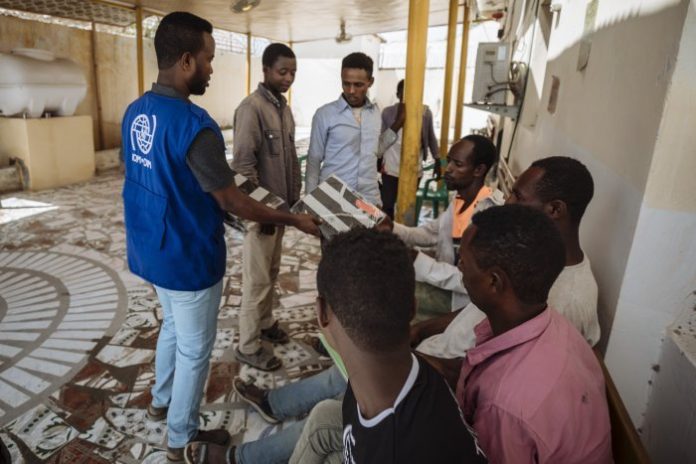The International Organization for Migration say they are concerned about people risking their lives to reach Saudi Arabia
HUNDREDS OF migrants are stranded in Somalia as a result of border and sea-crossing closures brought on by the COVID-19 pandemic.
According to the International Organization for Migration (IOM) scores of migrants, mainly from landlocked Ethiopia, pass through the Somalian city of Bossaso seeking to cross the Gulf of Aden hoping to proceed onward to Gulf countries, particularly Saudi Arabia.
Stringent border checks
IOM data shows that migration is still taking place despite the new border restrictions in the region. However more stringent border checks have seen many migrants without the resources to move from Somalia.
According to IOM estimates nearly 400 migrants, mainly from Ethiopia, are currently being hosted by members of the Ethiopian community living in informal settlements around the city.
In comparison to data collected in the first half of April in 2019, there have been 501 more arrivals in Bossaso but departures have fallen, with 8,261 less migrants trying to cross the Gulf of Aden during the same dates.
The IOM said it is working closely with authorities in Somalia and the Office of the Special Envoy for Children’s and Migrants’ Rights to ensure that migrants have access to basic services, including health as well as advocating for non-deportation and safe voluntary return of stranded migrants to their countries of origin.
Violence, abuse and exploitation
After a lengthy journey – likely exposed to violence, abuse and exploitation – migrants face precarious conditions in Bossaso, where they often cannot access water, sanitation, shelter or food upon arrival.
Among them is Fassil, 19, a migrant from the Tigray region in Ethiopia, now living amid the Ethiopian community in Bossaso.
He said: “I have been here for around three months. The coronavirus has changed everything. I cannot continue, I cannot go back because all borders are closed.”
Danger
Ahmed Shirie, the Chairman of the Ethiopian community in Bossaso said: “We do our best to help them in coordination with IOM and local authorities; however, if their numbers increase, and they cannot cross the sea due to the closure of borders, their well-being will be in great danger.”
Voice online







































